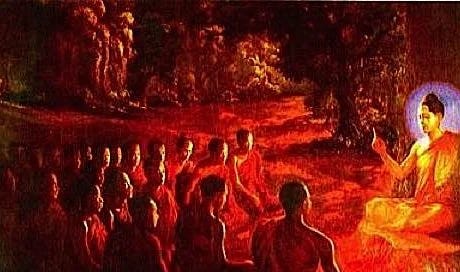The Bhaddekaratta Sutta teaches the essential and liberating practice of being mindfully present as life unfolds. Like all of the Buddha’s teachings, this sutta is grounded in the path of understanding the Four Noble Truths and releasing the mind from clinging to a self—especially the self defined through ignorance of these truths.
The title Bhaddekaratta translates as “an auspicious day.” But this is no ordinary lucky day. In the context of this teaching, an auspicious day is a day profoundly favorable to awakening. It is a day when we take seriously the practice of seeing clearly into dukkha, and when we begin to release the deeply ingrained tendency to identify with what we are not.
“Do not chase after the past or project your thoughts to the future.”
The Buddha opens this discourse by encouraging the monks to understand the nature of an auspicious day—not as a special calendar date or an alignment of events, but as the rare and powerful opportunity to live fully in the present moment. When we are not chasing the past or projecting into the future, we are present for our lives. And that is auspicious.
What the Buddha Taught
This short sutta comes from the Majjhima Nikaya (MN 131), where the Buddha explains the nature of entanglement with the world and the way to disentangle. His method? Cultivating mindfulness and wise reflection on the nature of experience, particularly through what he calls the Five Clinging Aggregates (pañc'upādānakkhandhā): form, feeling, perception, fabrication, and consciousness.
“The future is uncertain and death occurs equally for all.”
This refrain throughout the sutta is not intended to inspire fear or sadness. Rather, it’s a call to action: to engage mindfully with what is happening now. To develop concentration and insight. To cultivate compassion informed by wisdom. In doing so, we participate directly in the path of liberation.
Not Chasing the Past or Future
The Buddha is explicit: when we delight in what we were or had in the past—our body, our feelings, our thoughts—we are clinging. When we indulge in what we imagine we might become in the future—our body, feelings, or states of mind—we are likewise entangled in self-referential views.
Notice the I-making in these thoughts: “I had such a form,” “I might have such a feeling.”
This is the very process of clinging and becoming that keeps us bound.
Keep reading with a 7-day free trial
Subscribe to The Gentle Law to keep reading this post and get 7 days of free access to the full post archives.





